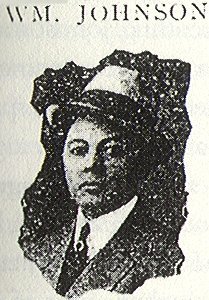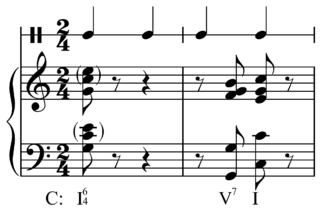Related Research Articles

Joseph Nathan "King" Oliver was an American jazz cornet player and bandleader. He was particularly recognized for his playing style and his pioneering use of mutes in jazz. Also a notable composer, he wrote many tunes still played today, including "Dippermouth Blues", "Sweet Like This", "Canal Street Blues", and "Doctor Jazz". He was the mentor and teacher of Louis Armstrong. His influence was such that Armstrong claimed, "if it had not been for Joe Oliver, Jazz would not be what it is today."

William Manuel "Bill" Johnson was an American jazz musician who played banjo and double bass; he is considered the father of the "slap" style of double bass playing.

Clarence Williams was an American jazz pianist, composer, promoter, vocalist, theatrical producer, and publisher.

Edward "Kid" Ory was an American jazz composer, trombonist and bandleader. One of the early users of the glissando technique, he helped establish it as a central element of New Orleans jazz.

Okeh Records is an American record label founded by the Otto Heinemann Phonograph Corporation, a phonograph supplier established in 1916, which branched out into phonograph records in 1918. The name was spelled "OkeH" from the initials of Otto K. E. Heinemann but later changed to "OKeh". Since 1965, Okeh was a subsidiary of Epic Records, a subsidiary of Sony Music. Today, OKeh is a jazz imprint, distributed by Sony Masterworks.
The Hot Five was Louis Armstrong's first jazz recording band led under his own name.
Louis Armstrong and his Hot Seven was a jazz studio group organized to make a series of recordings for Okeh Records in Chicago, Illinois, in May 1927. Some of the personnel also recorded with Louis Armstrong and His Hot Five, including Johnny Dodds (clarinet), Lil Armstrong (piano), and Johnny St. Cyr. These musicians were augmented by Dodds's brother, Baby Dodds (drums), Pete Briggs (tuba), and John Thomas. Briggs and Thomas were at the time working with Armstrong's performing group, the Sunset Stompers.
"West End Blues" is a multi-strain twelve-bar blues composition by Joe "King" Oliver. It is most commonly performed as an instrumental, although it has lyrics added by Clarence Williams.

In tap dancing, jazz, and blues, stop-time is an accompaniment pattern interrupting, or stopping, the normal time and featuring regular accented attacks on the first beat of each or every other measure, alternating with silence or instrumental solos. Stop-time occasionally appears in ragtime music. The characteristics of stop-time are heavy accents, frequent rests, and a stereotyped cadential pattern. Stop-timing may create the impression that the tempo has changed, though it has not, as the soloist continues without accompaniment. Stop-time is common in African-American popular music including R&B, soul music, and led to the development of the break in hip hop.
"Memories of You" is a popular song about nostalgia with lyrics written by Andy Razaf and music composed by Eubie Blake and published in 1930.
Carroll Dickerson was a Chicago and New York-based dixieland jazz violinist and bandleader, probably better known for his extensive work with Louis Armstrong and Earl Hines or his more brief work touring with King Oliver.

Perry Bradford was an American composer, songwriter, and vaudeville performer. His most notable songs included "Crazy Blues," "That Thing Called Love," and "You Can't Keep A Good Man Down." He was nicknamed "Mule" because of his stubbornness, and he is credited with finally persuading Okeh Records to work with Mamie Smith leading to her historic blues recording in 1920.
Reuben "River" Reeves was an American jazz trumpeter and bandleader.

"Heebie Jeebies" is a composition written by Boyd Atkins which achieved fame when it was recorded by Louis Armstrong in 1926. Armstrong also performed "Heebie Jeebies" as a number at the Vendome Theatre. The recording on Okeh Records by Louis Armstrong and his Hot Five includes a famous example of scat singing by Armstrong. After the success of the recording, an accompanying dance was choreographed and advertised by Okeh.
"(What Did I Do to Be So) Black and Blue" is a 1929 jazz standard composed by Fats Waller with lyrics by Harry Brooks and Andy Razaf. It was introduced in the Broadway musical Hot Chocolates (1929) by Edith Wilson. In the show, Wilson originally sang the song from a bed with white sheets, but the bed was removed after the first show due to the judgement that it was too suggestive. The show also included Waller's hit compositions "Ain't Misbehavin'" and "Honeysuckle Rose".
"Big Butter and Egg Man" is a 1926 jazz song written by Percy Venable. Venable was a record producer at the Sunset Cafe and wrote the song for Louis Armstrong and singer May Alix. The song is often played by Dixieland bands, and is considered a jazz standard.
Liza Mae "May" Alix was an American cabaret and jazz vocalist.
Joe "Fox" Smith(néJoseph Emory Smith; June 28, 1902 – December 2, 1937) was an American jazz trumpeter.
"Dippermouth Blues" is a song first recorded by King Oliver's Creole Jazz Band for Gennett Records in April 1923 and for Okeh Records in June of that same year. It is most often attributed to Joe "King" Oliver, though some have argued that Louis Armstrong was in fact the composer. This is partly because "Dippermouth", in the song's title, was a nickname of Armstrong's. Also, the phonograph recordings from 1922 gave credit to Armstrong and Oliver jointly. The song is a strong example of the influence of the blues on early jazz. There is a twelve-bar blues harmonic progression, with frequent bent notes and slides into notes.
Ollie Powers was an American jazz drummer and vocalist.
References
- ↑ Louis Armstrong, in his own words: selected writings
- ↑ Cook, Stephen. "Hot Fives & Hot Sevens, Vol. 2 > Review". Allmusic . Retrieved May 29, 2010.
- ↑ Brothers, Thomas (2014). Louis Armstrong: Master of Modernism. New York, NY: W.W. Norton & Company. p. 404. ISBN 978-0-393-06582-4.
- ↑ Public Domain Day 2023
- 1 2 Ward, Thomas. "Potato Head Blues > Song review". Allmusic . Retrieved May 29, 2010.
- ↑ Brothers, Thomas (2014). Louis Armstrong: Master of Modernism. New York, NY: W.W. Norton & Company. pp. 265–68. ISBN 978-0-393-06582-4.
- ↑ Records, Mosaic (2021-04-29). "Louis Armstrong - 25 Best Jazz Songs. Expert insights & analysis". Mosaic Records - Home for Jazz fans!. Retrieved 2021-07-22.
- ↑ Brothers, Thomas (2014). Louis Armstrong: Master of Modernism. New York, NY: W.W. Norton & Company. p. 263. ISBN 978-0-393-06582-4.
- ↑ "Woody Allen: His 40 Best One-liners". The Daily Telegraph . May 5, 2017. Retrieved May 17, 2020.